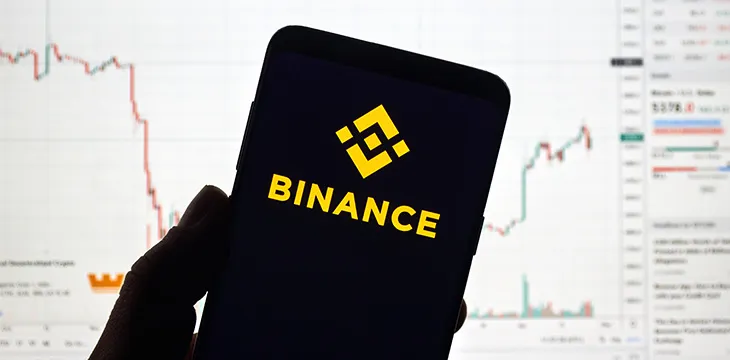|
Getting your Trinity Audio player ready...
|
U.S. authorities are likely updating their imminent indictments against top execs at the troubled Binance cryptocurrency exchange after a report exposed local traders accessing forbidden crypto fruit.
On Friday, a new report from Washington-based digital currency analytics firm Inca Digital revealed that U.S. derivatives traders continue to make use of international digital currency exchanges—including Binance, Bitfinex and FTX—despite those exchanges claiming to block U.S. residents.
Inca’s report cites 2,164 unique Twitter accounts, of which 372 were U.S.-based, that bragged about particularly successful digital currency derivative trades, often backing up this braggadocio with screenshots. A Wall Street Journal report on the Inca data claimed that these posts likely represented only the tip of the illegal derivatives iceberg.
The data suggests that the exchanges’ claims to be actively policing its customers’ origin were patently hollow. Some of the U.S. traders used virtual private networks (VPN) to disguise their actual location, while others accessed the forbidden sites simply by lying about their location without the sites requiring proof to support these claims.
FTX, for example, didn’t even require its users to supply a phone number that matched the country code for the country in which the customer claimed to be based. FTX, which raised $900 million in its most recent funding round, appears to have prioritized growth at the expense of, well, everything else.
Inca shares its data with the U.S. Commodity Futures Trading Commission (CFTC), which has loudly expressed its displeasure with digital currency exchanges offering derivatives products to U.S. traders. While FTX accounted for the majority of the Inca report’s illegal U.S. trades, Binance—which provided the funding that got FTX off the ground—didn’t exactly emerge with its honor intact. This latest hiccup will likely accelerate the rumored CFTC probe into Binance’s illegal dealings with U.S. customers.
That CFTC probe is but one battlefield in the multifront war being waged by American authorities against Binance. Both the U.S. Department of Justice and the Internal Revenue Service are reportedly probing Binance’s activities, increasing the likelihood that senior management—including CEO Changpeng ‘CZ’ Zhao—will face racketeering charges in the not-too-distant future.
Last one sanction Binance is a rotten egg
In what is rapidly becoming the hottest new global club, regulators continue adding their names to the list of jurisdictions in which Binance and/or its more speculative products are unwelcome. On Friday, Malaysia’s securities regulator issued a public reprimand against Binance for ignoring warnings that the exchange was operating illegally in the country.
In July 2020, the Malaysia Securities Commission (SC) placed Binance on its Investor Alert List for operating as a Digital Asset Exchange without local approval, but the exchange paid no mind. As a result, the SC has given the exchange 14 days in which to (a) shut off local access to Binance.com and affiliated mobile apps, (b) block Malaysian customers from accessing Binance’s Telegram group and (c) halt all Malaysian-focused media and marketing.
The order cites CZ as being personally responsible for ensuring the company complies with the SC’s wishes. CZ’s personal Twitter feed made no mention of Malaysia’s order, except an oblique platitude that “regulatory compliance is a must, not a decision. And it leads to MORE market access and adoption, not less.”
CZ’s pro-regulatory spin would play much better if it didn’t follow years of flippant comments regarding his company’s supposed immunity to regulatory authority. Binance’s official reply to the SC’s missive was to declare that the company “does not operate out of Malaysia.” No kidding, given that the company’s celebrated lack of formal headquarters means it technically doesn’t operate out of anywhere.
A bad bet on India
Meanwhile, India’s financial watchdog has summoned Binance execs to answer questions regarding their potential involvement in money laundering by illegal online betting apps run by Chinese nationals.
On Friday, Bloomberg reported that India’s Enforcement Directorate (ED) was looking to talk to execs from Binance and its local offshoot WazirX, which Binance acquired in 2019. While sports betting is illegal in India, Chinese operators reportedly earned more than US$134 million from local bettors over the past 10 months, then allegedly laundered the proceeds through WazirX and on to the main Binance platform.
This is the second time in as many months that the ED has probed suspected betting chicanery through WazirX/Binance. In June, the ED opened an investigation into alleged violations of the Foreign Exchange Act by Chinese-led gambling apps converting betting proceeds to the dodgy Tether (USDT) stablecoin, then funneling the USDT through Binance.
The ED has concluded that Binance failed to collect the required Know Your Customer (KYC) data from the accounts in question, while also paying scant attention to virtual currency guidelines issued by the global AML watchdogs at the Financial Action Task Force (FATF).
Binance announced that it was tightening its global KYC requirements, but only for withdrawals. The company has attempted to portray this move as reflecting its (ahem) commitment to regulatory compliance, although suspicions are mounting that Binance is suffering liquidity issues and is therefore eager for any justification to restrict capital outflow.
The ED has reportedly yet to get a response from Binance, likely because its aforementioned ‘we’re not based anywhere you’ve heard of’ corporate philosophy allows it to claim that it’s yet to be formally served with any information requests.
Finding itself at the center of a dustup between Indian authorities and Chinese bookmakers could prove particularly inconvenient for Binance given the rising tensions between the two countries. Last year, Indian authorities suggested Chinese betting apps could be stealing local bettors’ personal data and funneling the info to Beijing for as yet unknown purposes.
Derivatives? Never heard of ‘em
Capping off a particularly busy Friday, Binance announced that it had begun to “wind down our derivatives products offerings across the European region, commencing with the Netherlands, Germany and Italy.” Effective immediately, users in these markets can no longer open new futures or derivatives accounts, while all existing positions will be forced to close at some unspecified future date.
Nowadays, no Binance PR is complete without a little gaslighting. As such, the company claimed Friday that the derivatives switch-off was entirely organic, and not at all driven by German and Italian regulators’ express warnings that, contrary to CZ’s assertions, Binance wasn’t above the law.
Frankly, we’re growing weary of writing these near-daily updates of Binance’s retreat from this or that market/product accompanied by CZ’s ‘this is fine’ commentary, so we’re going to get a jump on next week’s news by writing the headlines now.
- Binance pauses political assassination futures, CZ asks ‘Was that wrong? Should we not have done that?’
- Binance unveils new corporate HQ at rotating cast of Denny’s restaurants
- Binance limits withdrawals to users who can prove double-vaccination for Hepatitis C(Z)
- Binance accelerates CEO search after CZ spontaneously combusts during Antarctica trip
Follow CoinGeek’s Crypto Crime Cartel series, which delves into the stream of groups — from BitMEX to Binance, Bitcoin.com, Blockstream, ShapeShift, Coinbase, Ripple and Ethereum—who have co-opted the digital asset revolution and turned the industry into a minefield for naïve (and even experienced) players in the market.

 05-08-2025
05-08-2025 





